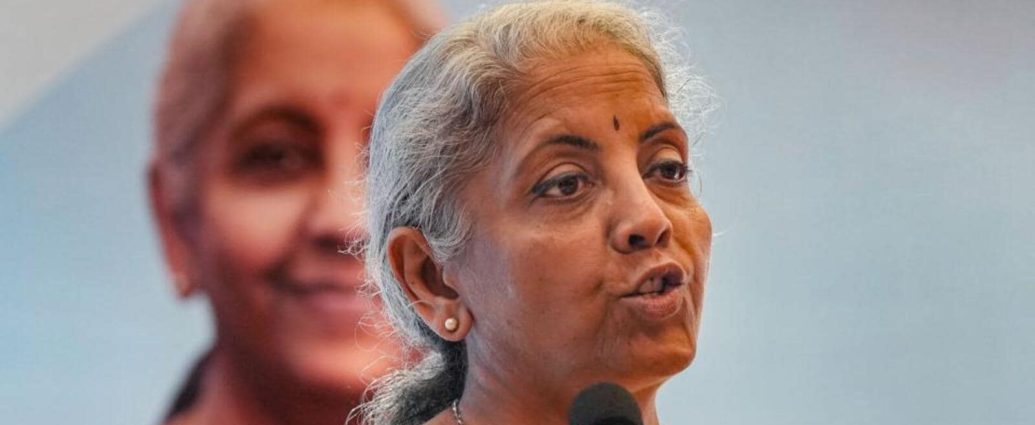The Confederation of Indian Industry (CII) has proposed a four-pronged approach to re-energise growth – revitalise consumption, lay a credible roadmap for fiscal consolidation, push for manufacturing, and boost exports – and suggested the government to curtail “non-priority” expenditures such as fuel and fertilisers subsidies.
In its pre-Budget memorandum to the Union finance ministry, CII stressed the need to revitalise the investment as well as the consumption demand to infuse vibrancy in the economy, the industry association said in a statement.
“For reviving investment, the memorandum recommends raising capital spending to 3.3-3.4% of GDP [gross domestic product] in FY24 from 2.9% currently with an aim to increase it further to a 3.8-3.9% by FY25,” it said.
CII suggested increasing outlays on green infrastructures like renewables along with traditional ones such as roads, railways, and ports. In addition, full implementation of Gati Shakti and ₹111-lakh crore National Infrastructure Pipeline (NIP) should be expedited to bring in efficiency in infrastructure creation, it added.
Quoting CII president Sanjiv Bajaj, the statement proposed further ease in tax administration. It added the government should contemplate a reduction in the rates of personal income tax in its next push for reform to increase disposable incomes and revive the demand cycle.
CII said tax certainty for businesses and corporate tax rates should be maintained at the current levels and called for further decriminalisation of civil offences. It added no arrests or detention should take place in civil cases unless criminalisation in business has been proved beyond doubt.
For raising consumption demand, the association proposed rationalising income tax slabs and rates for individuals, reducing the 28% Goods and Services Tax rate on select consumer durables, and expediting rural infrastructure projects for facilitating employment generation in the hinterland.
Stressing the need for fiscal consolidation, it suggested the government draw “a credible road map” and announce the same in the Budget, which would gradually bring down the fiscal deficit to 6% of GDP in FY24 and to 4.5% by FY26. It underscored the need to meet disinvestment targets and expenditure rationalisation.
CII suggested curtailing “non-priority expenditure by rationalizing subsides such as fuel and fertilizers” as “non-merit subsidies comprise a staggering 5.7% of GDP” of which 1.6% is from the Centre and 4.1% from the states. “This is clearly unsustainable,” it added.
India’s fertiliser subsidy alone is expected to surge above ₹2.5 lakh crore in FY23, an over 138% jump from the Budget Estimate (BE). The government recently approved a one-time grant of ₹22,000 crore to state-run oil marketing companies that took a hit on cooking gas between June 2020 and June 2022, which is a 450% jump from ₹4,000 crore direct transfer of LPG subsidy in BE for 2022-23.
On encouraging manufacturing and boosting exports, CII suggested a fillip to ease of doing business through further digitisation, faster and time-bound clearance, contract enforcement, alternate dispute redressal mechanism, and a genuine single window system encompassing central and state clearances. It asked the government for further simplification in the procedures pertaining to withholding taxes, return filing, assessments, and the appellate mechanism.
“With shifting global value chains, this is an opportune time for India to expand its manufacturing. While the government has done much on ease of doing business, more can be done,” said Chandrajit Banerjee, director general of CII.
Rajiv Memani, chairman of CII’s taxation committee, said the Budget should provide a fillip to ease of paying taxes by promoting and ensuring the swift functioning of important dispute resolution mechanisms.
“Government should also consider laying down a roadmap for rationalising the domestic TDS [tax deducted at source] rates structure by having only two or three categories of payments and a small ‘negative list’ of payments which will not be liable to TDS. This will considerably ease the compliance burden on taxpayers, simplify the TDS provisions and avoid litigation on characterisation disputes,” he added.
CII was expected to be a part of finance minister Nirmala Sitharaman’s pre-Budget consultations on Monday, one person aware of the matter said, requesting anonymity.
Sitharaman will hold the consultations until next Monday virtually, the ministry said in a tweet. She is expected to present the Union Budget for FY24 on February 1.
“Finance Minister Smt. @nsitharaman will be holding her 1st #PreBudget2023 consultations with the of captains from Industry & experts of #Infrastructure and #ClimateChange in two groups, tomorrow, 21st Nov. 2022, in forenoon and afternoon,” the ministry tweeted.
The consultations will cover sectors such as agriculture, the agro-processing industry, the social sector, labour and trade unions, the services sector, and trade. The process is expected to be concluded with a meeting with economists.
